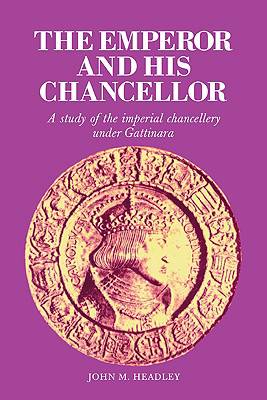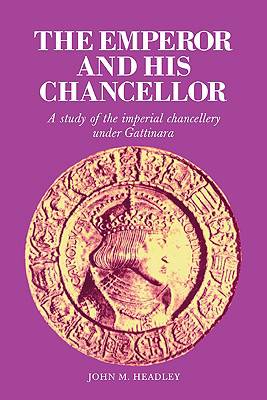
Bedankt voor het vertrouwen het afgelopen jaar! Om jou te bedanken bieden we GRATIS verzending (in België) aan op alles gedurende de hele maand januari.
- Afhalen na 1 uur in een winkel met voorraad
- In januari gratis thuislevering in België
- Ruim aanbod met 7 miljoen producten
Bedankt voor het vertrouwen het afgelopen jaar! Om jou te bedanken bieden we GRATIS verzending (in België) aan op alles gedurende de hele maand januari.
- Afhalen na 1 uur in een winkel met voorraad
- In januari gratis thuislevering in België
- Ruim aanbod met 7 miljoen producten
Zoeken
€ 43,45
+ 86 punten
Omschrijving
This study examines a significant development within late medieval and early modern European government, set in the context of the tense relations between the young Emperor Charles V and his ageing chancellor Mercurino de Gattrina. It focuses upon an important transformation in the administrative reorganisation of European monarchies: the shift in the political centre of gravity from the medieval institution of the chancellery as the secretariat for all government business and authentication to a small group of secretaries, the minister of a later age, acting directly in collaboration with the prince. In the collision between the traditional judicial and administrative pre-eminence of the late medieval chancellor and the new secretaries as expediters of the Renaissance prince's will. Charles gave his support to the latter, thus associating himself with the previous work of Ferdinand the Catholic. Against the background of this struggle with the state secretaries the imperial chancellery is analysing in its relations to the individual chancelleries of Charles V's disparate lands.
Specificaties
Betrokkenen
- Auteur(s):
- Uitgeverij:
Inhoud
- Aantal bladzijden:
- 204
- Taal:
- Engels
- Reeks:
Eigenschappen
- Productcode (EAN):
- 9780521090193
- Verschijningsdatum:
- 20/11/2008
- Uitvoering:
- Paperback
- Formaat:
- Trade paperback (VS)
- Afmetingen:
- 152 mm x 229 mm
- Gewicht:
- 303 g

Alleen bij Standaard Boekhandel
+ 86 punten op je klantenkaart van Standaard Boekhandel
Beoordelingen
We publiceren alleen reviews die voldoen aan de voorwaarden voor reviews. Bekijk onze voorwaarden voor reviews.









